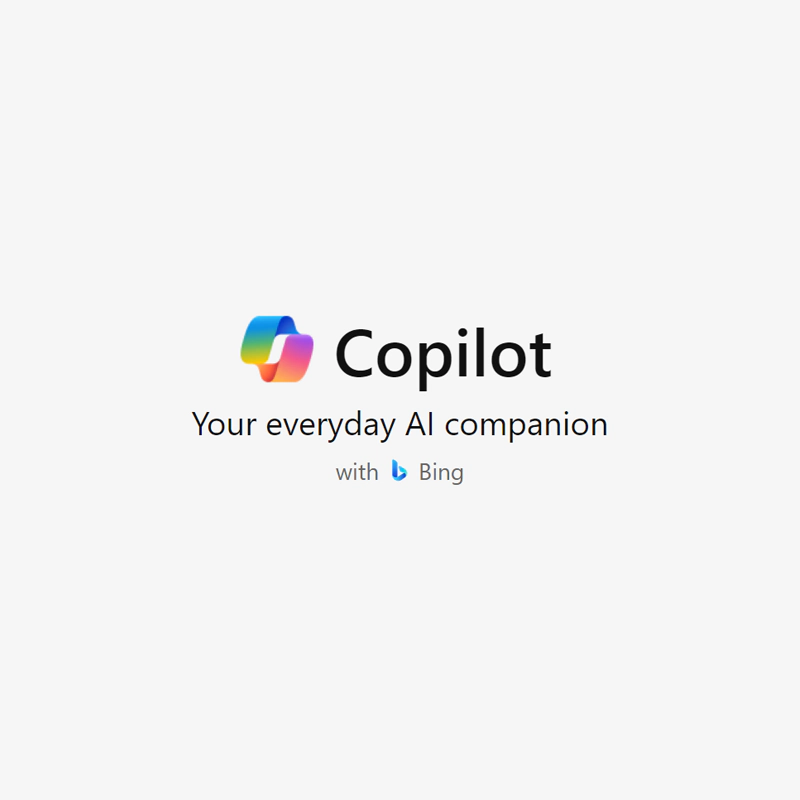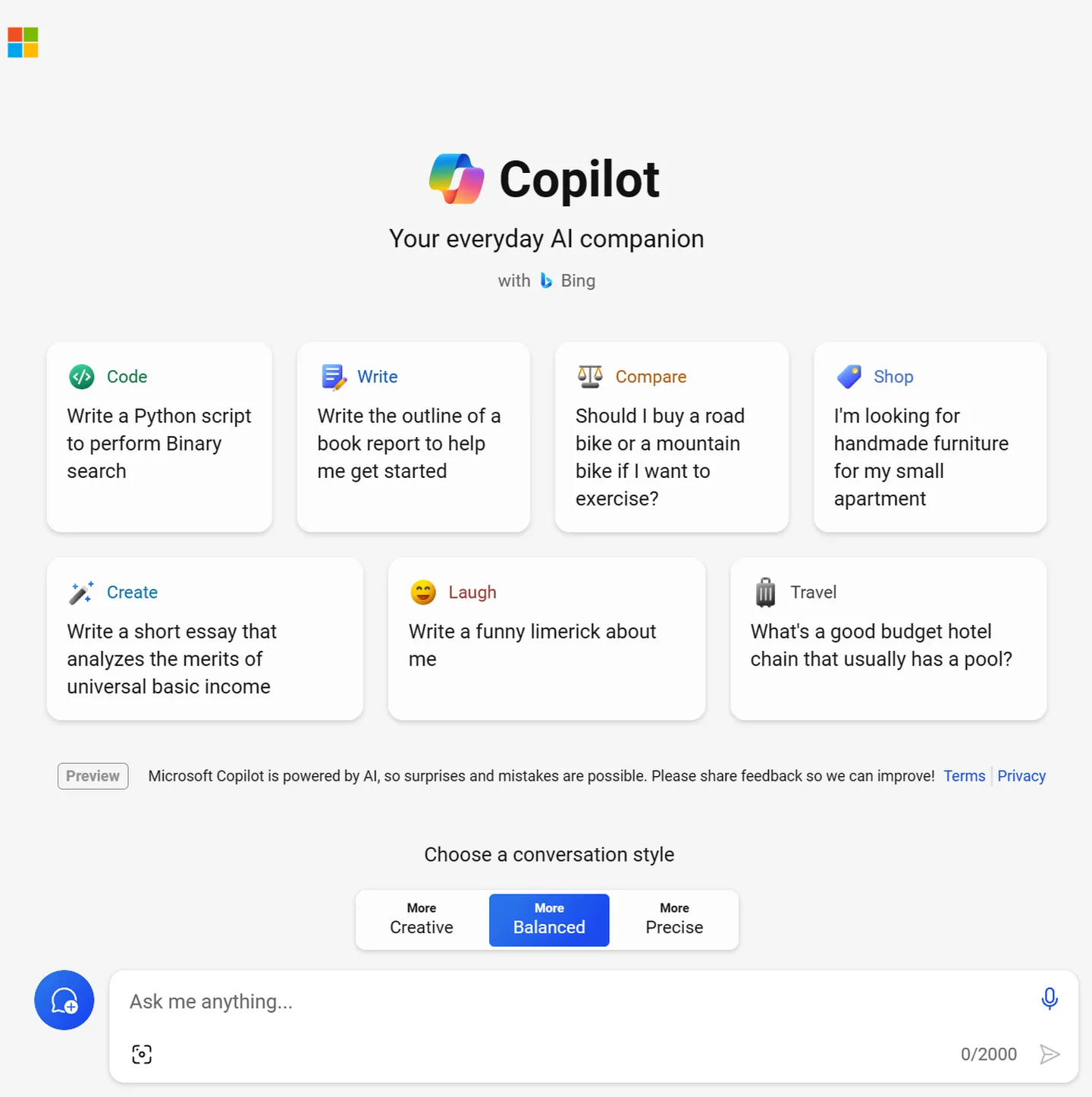
Bing Chat is so generic. What it needs, is a brand that sells.
Microsoft is the tech titan, and it finally settled with the name 'Copilot' for its main generative AI product. This decision follows months after it tried pushing Bing Chat to the masses, competing with the likes of OpenAI ChatGPT, Google Bard, and others.
Microsoft first made its big AI push earlier this 2023 as part of its Bing search engine.
By integrating a ChatGPT-like interface directly into its search results, Microsoft did what Google never dared. Despites issues and controversies here and there, the company kept pushing forward, until the market realizes that Bing Chat is part of Bing itself, if not more popular.
This time, less than a year later, Microsoft is dropping the Bing Chat branding, in favor of Copilot, a name that has been around on Microsoft Edge and Windows 11.
Microsoft initially used Bing Chat to compete directly with Google Search, as a way to ramp up user engagements.
But knowing that the generative AI product is already a hype on its own, Microsoft is shifting its focus, and now has its eyes on ChatGPT instead.

The Bing Chat rebranding comes just days after OpenAI revealed 100 million people are using ChatGPT on a weekly basis.
Despite Microsoft has a close partnership with OpenAI, and has been one of its main backers, the two companies are still rivals in the generative AI field, and that they're competing for the same audience.
With the rebranding, Microsoft is clearly trying to position Copilot as the option for consumers and businesses.

"Bing Chat and Bing Chat Enterprise will now simply become Copilot," explained Colette Stallbaumer, general manager of Microsoft 365.
Now, with Copilot having its own brand, Bing is no longer be the main entry point for Microsoft’s AI ambitions with Copilot anymore.
This literally leaves Bing back as a search engine again.
But Microsoft claims that Bing is still a big part of Copilot.
"Bing remains a prominent brand and technology powering many Copilot experiences while continuing to be a leader in the search industry," said Caitlin Roulston, director of communications at Microsoft.
At this time, Microsoft is pitching Copilot as the free version of its AI chatbot, and Copilot for Microsoft 365 as the paid option.
And to show how serious it is with this branding, Microsoft has also launched a dedicated Copilot mobile app.

Initially for users on Android, made available in the Google Play Store, the Copilot app offers users access to Microsoft’s AI-powered Copilot without the need for the Bing mobile app.
The looks and feel of the app is pretty much similar to ChatGPT, with access to chatbot capabilities, image generation through OpenAI's DALL·E 3, and the ability to draft text for emails and documents.
It also includes free access to OpenAI’s GPT-4 model, something that users have to pay if using ChatGPT.
Indeed, launching mobile apps for Copilot is the next logical step of expanding this standalone Copilot experience, particularly as ChatGPT is already having a strong presence on mobile.